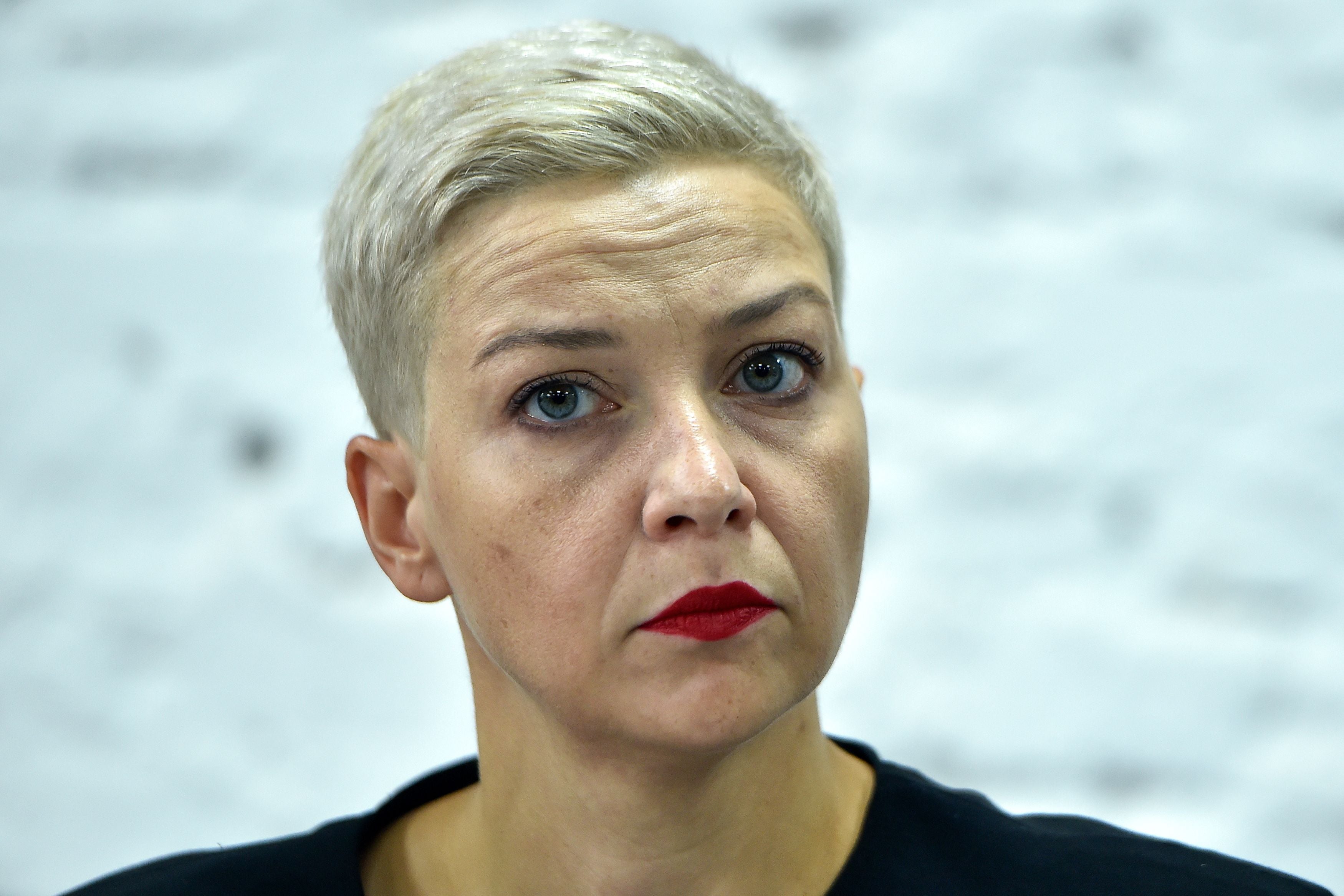Your support helps us to tell the story
From reproductive rights to climate change to Big Tech, The Independent is on the ground when the story is developing. Whether it's investigating the financials of Elon Musk's pro-Trump PAC or producing our latest documentary, 'The A Word', which shines a light on the American women fighting for reproductive rights, we know how important it is to parse out the facts from the messaging.
At such a critical moment in US history, we need reporters on the ground. Your donation allows us to keep sending journalists to speak to both sides of the story.
The Independent is trusted by Americans across the entire political spectrum. And unlike many other quality news outlets, we choose not to lock Americans out of our reporting and analysis with paywalls. We believe quality journalism should be available to everyone, paid for by those who can afford it.
Your support makes all the difference.Maria Kolesnikova, a prominent female Belarusian opposition leader, resisted efforts to deport her by ripping up her passport at the border, it has been reported.
The protest leader and activist had vanished after reportedly being abducted by masked men in Minsk on Monday. A witness told local media she was snatched from the street and bundled into a minibus in the centre of the capital.
She was then apparently driven to the Ukrainian border but refused to leave the country.
The Interfax-Ukraine agency reported: “When attempting to deport her, she tore her passport and could not be allowed into the territory of Ukraine by border guards.”
Deputy Ukrainian interior minister Anton Gerashchenko said in a Facebook post that Ms Kolesnikova, who had been missing for the past 24 hours, successfully prevented “a forcible expulsion from her native country”.
“Maria Kolesnikova was not able to be deported from Belarus as this brave woman took steps to prevent herself from being moved across the border,” he said.
“She remained on the territory of the Republic of Belarus. Alexander Lukashenko is personally responsible for her life and health."
Since the contested vote on 9 August, large protests have taken place in the former Soviet country, which borders Russia and has been ruled by Mr Lukashenko since 1994.
Some 100,000 demonstrators took to the streets at the weekend and the protest movement shows no sign of waning after four weeks of mass demonstrations and strikes.
Emboldened by the backing of Russian president Vladimir Putin, Mr Lukashenko has denied vote-rigging and accused foreign powers of trying to topple him in a revolution.
In an interview with Russian journalists on Tuesday, Mr Lukashenko said he would not step down but admitted that he “may have sat in the president’s chair too long".
Ms Kolesnikova has been a key figure in the mass protests and was a campaign partner of opposition candidate Sviatlana Tsikhanouskaya, who stood against the long-standing president in the 9 August elections.
Two other opposition figures, Anton Rodnenkov and Ivan Kravtsov, also went missing around the same time as Ms Kolesnikova, but the Ukrainian border service has said both entered Ukraine early on Tuesday.
The Belarus state Belta news agency reported that Mr Kolesnikova had been in a car with the other two activists but she was pushed out of the car, which drove without her across the Ukraine border.
The exact sequence of events and details of the report could not be confirmed.
Ms Kolesnikova’s disappearance sparked concern throughout the international community, with the UK’s foreign secretary Dominic Raab tweeting: “Seriously concerned for the welfare of Maria Kolesnikova in Belarus.
“Lukashenko’s regime must make her safe return their highest priority. The regime must cease brutalising protesters, release political prisoners, and begin dialogue with the opposition.”
Ms Tsikhanouskaya, who has fled to Lithuania since the election, said on Monday through her press service that the “abduction” of her colleagues “is an attempt to disrupt the activity of the Coordination Council”.
The Coordination Council is a seven-member presidium created by Ms Tsikhanouskaya that aims to coordinate a peaceful and orderly transfer of power from Mr Lukashenko, and to hold new presidential elections.
She added: “However, this won’t stop us. The more they intimidate us, the more people will take to the streets. We will continue to fight, (we) will pursue the release of all those jailed, and a new, fair election.”
Additional reporting by agencies







Join our commenting forum
Join thought-provoking conversations, follow other Independent readers and see their replies
Comments